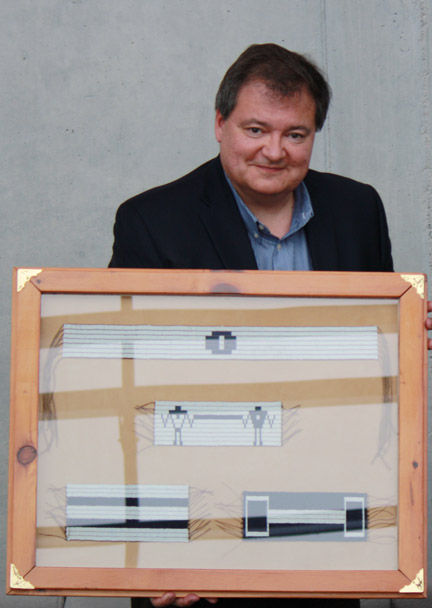In conversation with Dr. Mike DeGagné

By Kelly Anne Smith
Dr. DeGagné is the first Indigenous university president in Canada. Dr. DeGagne is President and Vice-Chancellor of Nipissing University in North Bay, Ontario. He created and dissolved the Aboriginal Healing Foundation which was started in 1998 by the federal government to support community-developed and delivered programs to address the intergenerational effects of abuse suffered by Survivors in the Indian Residential School System.
DeGagne travelled to Ottawa to witness the Truth and Reconciliation Commission’s release of the final summary.
KAS: You once wrote that words of apology mean nothing without action[1]. Do you still feel that way after observing the ceremony of the release of the Truth and Reconciliation Commission Final Summary in Ottawa this past week?
DeGagné: “You can’t say one thing and do another. There is room for ceremony: the ceremony of words, the ceremony of intentions, declaration and apology.
All of the things that have been done-the federal apology, the church apologies, and now with the Truth and Reconciliation Report- those are good things. But we have to measure that against what action has been taken.”
KAS: Harper’s response to the report seems to be for more resources to be available for Aboriginal education. Do you feel that in the near future Aboriginal people will have the same educational rights as the rest of Canadians?
DeGagné: “I don’t rely on the federal government to take action in terms of reconciliation. There is fear there, that in taking action that they might incur some kind of liability or responsibility for everything that has happened.
I think that what the Truth and Reconciliation Commission was required to do, was to give us a sense of truth. They did that very, very well. The reconciliation part — how we’re going to go about it, what has occurred, and what is it going to look like — that’s the part that will come out in the final report.
One of the interesting things that the commission has called for is all kinds of systemic changes to fix problems that we all knew already existed. For example, we have known for years that have to be change in the child welfare system.
There is also the need for change to the education system where there are fundamental inequities for on and off reserve funding. There needs to be more progress towards giving First Nations control over First Nations education.
We have known that there must be changes to the justice system. I think Mr. Harper and the federal government is tinkering around the edges. We have to get into the really difficult part of changing systems, not just adding dollars here and there.”
[1] Dr. Mike DeGagné wrote in Speaking My Truth: Reflections on Reconciliation and Residential School (pg. 230),
“The real power of apology comes afterwards, in the actions taken to set things right. Many apologies of the two “taking a different course in the future,” but for governments, institutions, and even churches this can be a difficult path. In the end the impact of apology may be reflected in forgiveness and what remains on the hearts of those who receive them.”


